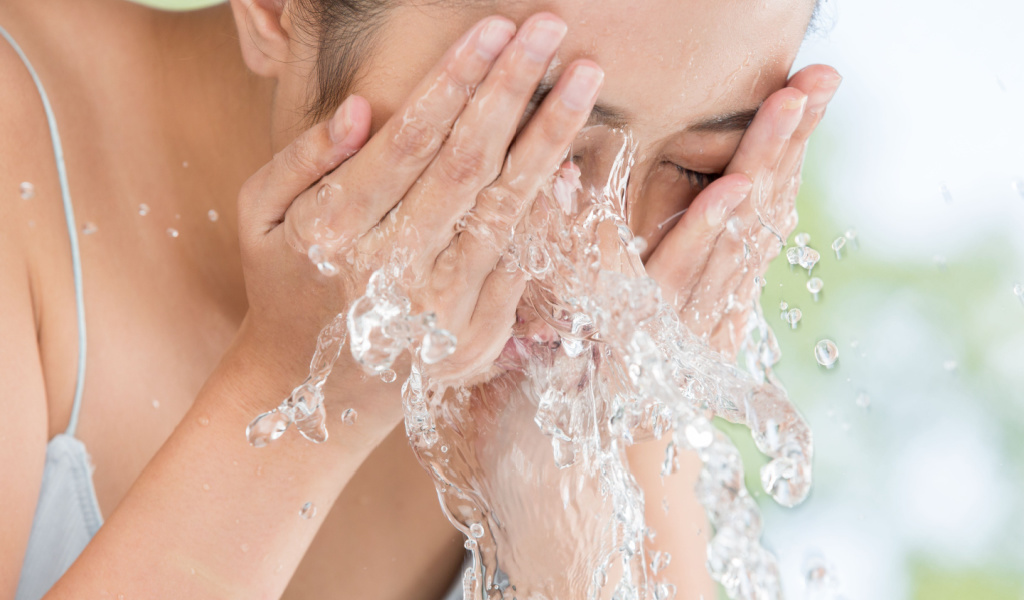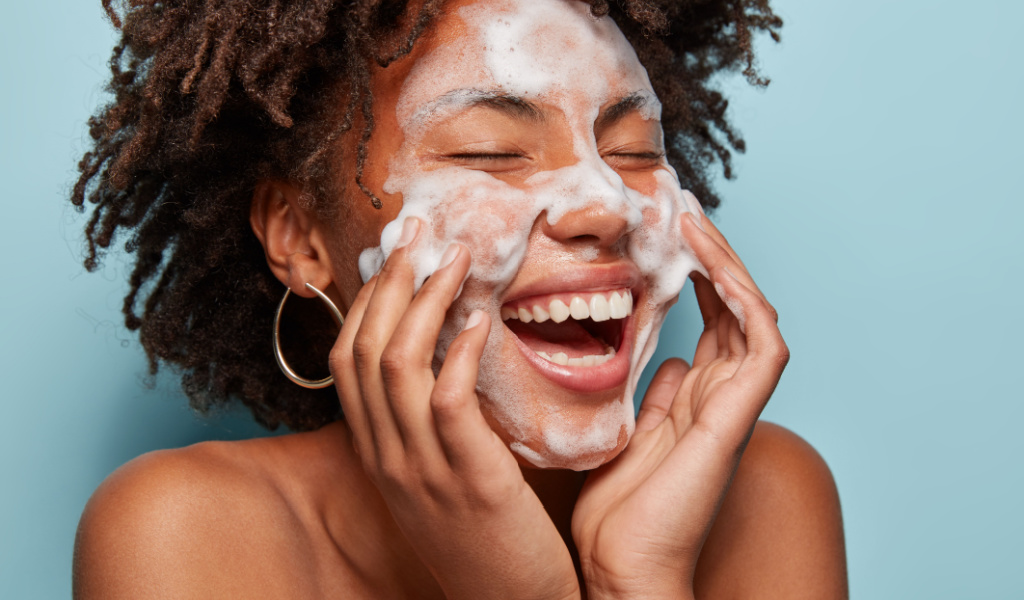You’d think that something as basic as washing your face would be a simple task that you don’t need to think much about, but you would be wrong!
Your face is the first thing you present to the world and it is a major part of your body, so it needs to look and feel good. It goes through a lot throughout the course of a day, from sun and wind to makeup and the glow from screens – so it deserves careful caring. The first step to taking care of your skin is washing your face. Contrary to what most people may believe, there is a right answer for how and how often you should do so.
“Face cleansing is critical to maintaining healthy-looking and healthy-feeling skin,” says Aanand Geria, MD, a board-certified dermatologist in Verona, New Jersey.

How Often Should You Wash Your Face?
According to research, many people reported that they do not cleanse their faces in the appropriate manner. A 2017 survey by skincare brand CeraVe that involved 1,000 adult men and women found that more than half of them didn’t have the habit of washing their faces before bedtime.
This falls below the mark when compared to what dermatologists suggest. Experts agree that the right number depends on each person’s individual skin, but the general consensus is that it should be at least twice a day.
Nazanin Saedi, MD, is a Philadelphia-based board-certified dermatologist. She says that it’s “that it’s important to wash your face in the morning and at the end of the day.” She explains that washing in the morning gets rid of dirt that’s settled in your face at night and washing in the night gets rid of dirt, sweat, makeup, and anything that could have accumulated throughout the day.
Dr. Geria, suggests cleansing at night and washing your face in the morning, especially if you have sensitive skin or other conditions that may trigger irritation. Both experts suggest talking to your dermatologist to figure out the right way to cleanse your face daily.
What Happens When You Don’t Wash Your Face Enough?
The effects of inadequate washing can cause a range of reactions, depending on your skin. Its especially important for those who have acne, as improper cleansing can make breakouts a more common occurrence. “Facial cleansing removes grime from the skin and pores, which [if allowed to build up], leads to clogging and breakouts,” says Dr. Geria.
On the other hand, Dr. Saedi says that you need to vary of over-washing your face, even when you have acne. “If you wash your face more than twice a day, then you are stripping the natural oils in your skin, and, as a result, you will end up overproducing oils,” she says.
Even on days when you don’t leave the house or wear makeup, it’s important to wash your face before bedtime because your pores can still get clogged. “Dirt, oil, and other unwanted debris can still buildup on the skin throughout the day,” Saedi says. Failing to wash your face at night once in a while won’t make a big impact on your skin, so don’t panic if you’ve missed it after a particularly tiring day!

How to Wash Your Face?
Here are the steps to cleansing your face the right way, according to Dr. Geria:
- Dampen your face with lukewarm water.
- Moving your fingertips in a circular motion, apply a gentle facial cleanser. Make sure to focus on your T-zone and jawline. (Saedi suggests doing this for 30 seconds or more to ensure that you clean off all the oil and dirt).
- Rinse off with lukewarm water.
- Pat your face dry with a clean towel.
What Cleanser to Use to Wash Your Face?
The good news is that there are so many great options for cleansers in the market formulated to mimic the pH of the skin so it does not damage or overly dry it out. But the bad news is that people can feel overwhelmed by the choice and find it hard to pick the right one. Perhaps this is why half of the people in the CeraVe study reported to using hand soap or bath wash on their face!
Unfortunately, such products are not formulated for the face and can strip the moisture from your face, leading to irritation, itchiness, and damage. That’s why it’s crucial to pick a cleanser that suits your skin type. According to Dr. Geria’s advice, a gentle or creamy cleanser works best on dry or sensitive skin, while gel or foam cleansers suit oily skin best.
Dr. Saedi suggests that those with dull skin can use cleansers with alpha hydroxyl acids or AHAs, such as a glycolic-based cleanser. She also advises against using harsh scrubs. Those with sensitive skin should consider switching to fragrance-free cleansers or anything that is labeled specifically for sensitive skin. Cleansing towelettes are an acceptable alternative to when you’re traveling says Dr. Saedi, but you should avoid using them if they cause any skin reaction.



